How embarrassing ancestor went from 'bit of a giggle' to icon
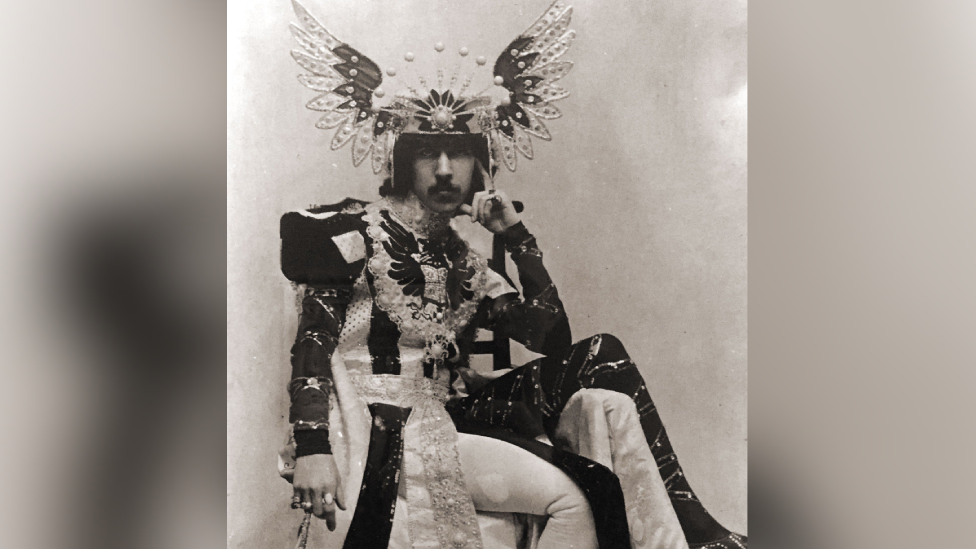
Henry Cyril Paget, 5th Marquess of Anglesey, poses in one of the elaborate costumes he had made for the shows he put on at his home in Plas Newydd, Anglesey
- Published
One descendant has a statue on a massive column commemorating his life. The other has a few photos stuck in a bathroom.
It's not hard to imagine which one the family of the time was keener to remember. However, as a musical celebrating the man in the bathroom makes clear, sometimes you have to play the long game - or as the show's title says, How to Win Against History.
For the bathroom photos depict Henry Cyril Paget, 5th Marquess of Anglesey, a man who bankrupted his family and died young far from home, after a few short years of splashing his aristocratic forebears' cash on extravagant and outrageous self-produced shows in Edwardian Britain, appearing in women's dresses and costumes literally made of diamonds.
Now 120 years after his death a play, external and the film Madfabulous, external, inspired by his life, is putting him firmly back in the spotlight, but what does the current generation of his family make of the man who was once relegated to a toilet?
It's a Sin star to play Welsh aristocrat in new film
- Published4 September 2024
A tiara, scandals and 'erased queer history'
- Published7 March 2020
Forgotten Marquess photos 'cause stir'
- Published23 April 2018
Alex, 8th Marquess of Anglesey, says Henry is now viewed with affection by himself and other family members, as time and changing attitudes have cast his exploits in a more understanding light.
Although Henry married his cousin, their marriage was apparently never consummated and his wife later filed for annulment. Was he gay? No conclusive evidence either way, but it's hard not to imagine he was somewhere on the LGBTQ+ spectrum of sexualities.
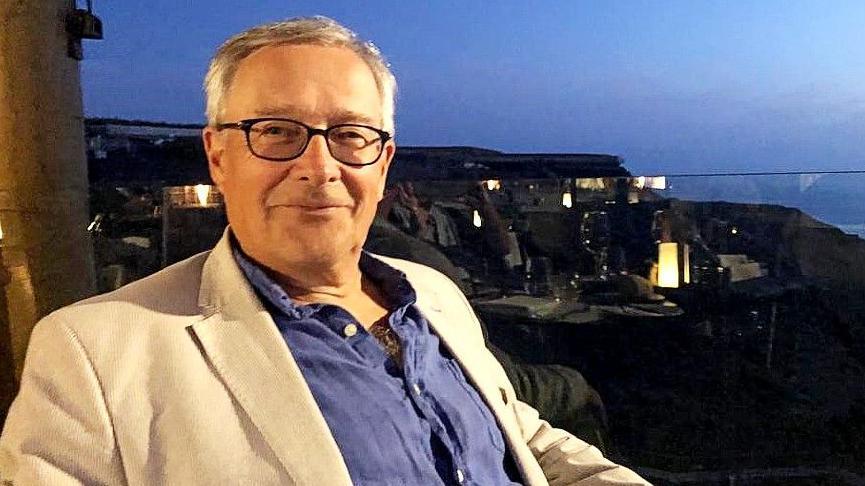
Alex, 8th Marquess of Anglesey, is happy to celebrate Henry Cyril's 'rather extraordinary and marvellous life'
Alex says he first came to know of Henry through those bathroom photos. "The one I particularly remember was him dressed up as Boadicea with big Edwardian moustaches.
"[It was] a bit of a giggle. His existence wasn't denied but he wasn't a major part of the family heritage.
"He was viewed as the black sheep of the family, this eccentric, weird bloke who we knew about and thought he sounded quite funny.
"When I was growing up in the 1950s and 60s, homosexuality was still illegal. He wasn't necessarily gay actually, he was probably asexual, but that whole kind of thing of an alternative sexuality was certainly not generally in most circles accepted.
"That personal sexual liberation of the 1960s, and then more recently of course with LGBTQ identities, he has become a bit of an icon, and attitudes towards him have definitely changed."
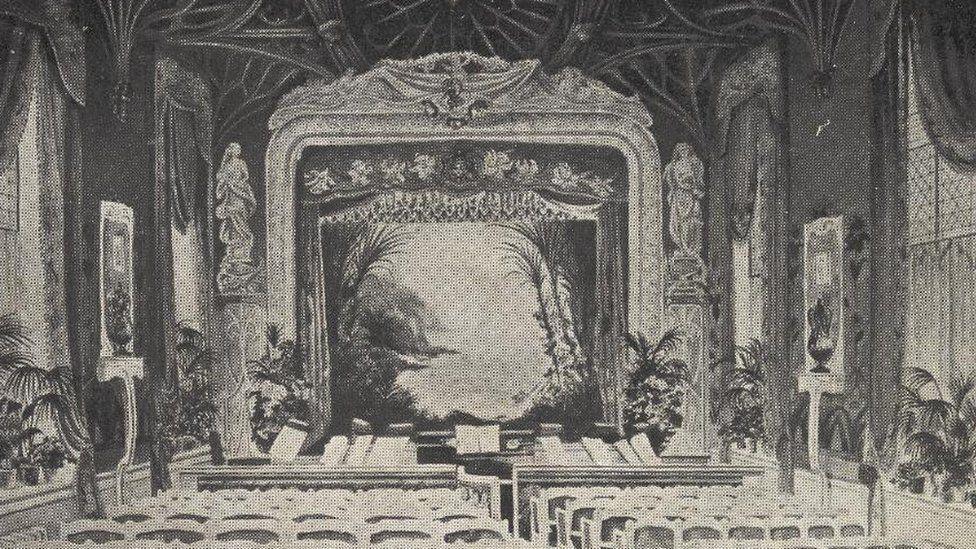
Henry Cyril converted the chapel at Plas Newydd into the "Gaiety Theatre" to use for his performances
Alex says because not much is known about Henry - his own diaries and letters were seemingly destroyed by the family after his death and most of the stories about him were told in sensationalist press reports - his life has become an opportunity for creatives to fill in many blanks with their own imaginings.
Henry was an only child who was left motherless at a very young age and was raised for the first years of his life in Paris by relatives, where he was exposed to the theatrical world of the period.
But then his father reclaimed him and he was sent to live at Plas Newydd on Anglesey, and his life followed the pattern of education at Eton and an affiliation with the military typical of his class.
However, on the death of the 4th Marquess in 1898, Henry inherited the title, the lands and the money, and proceeded to live as he chose.
He renamed Plas Newydd Anglesey Castle, converted the chapel to a performance space he called the Gaiety Theatre, and put on seemingly spectacular shows with elaborate and jaw-droppingly expensive costumes and props, inviting both notables and the local people in for free to witness his magnificence.
He ran through most of a fortune that in today's money has been estimated at about £60m and was bankrupted, leaving a shadow of his inheritance. Estranged from his wife, he moved to Monte Carlo and died aged 29.
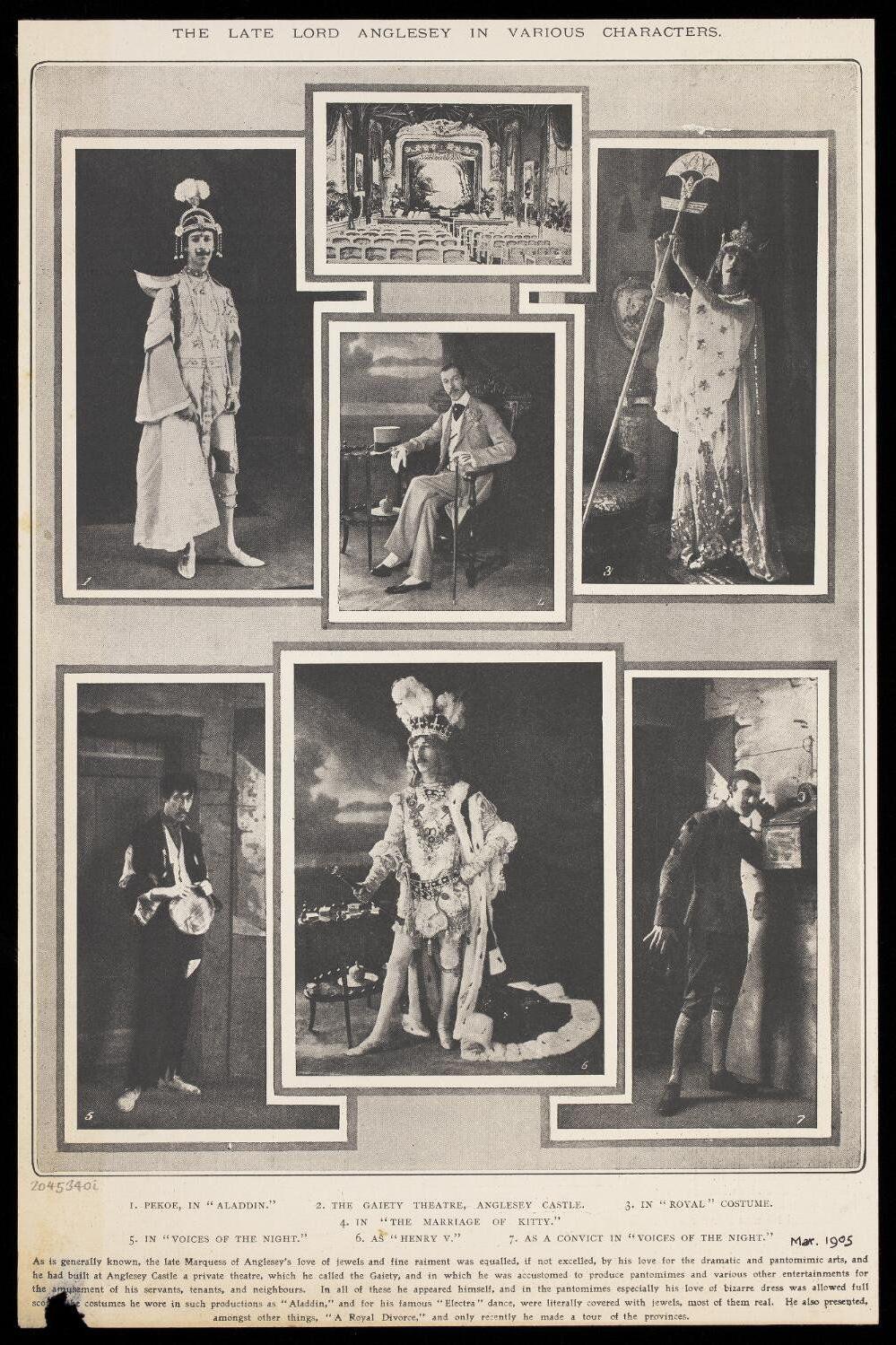
Some of the flamboyant outfits Henry Cyril bedecked himself in
'It's a pity he spent all the money'
And that is where Alex's branch of the family comes in. As he acknowledges, it is only because of Henry's lack of issue that he now holds the title of 8th Marquess, as it fell to Henry's cousin, Alex's grandfather, on his death.
What does he make of Henry, from the perspective of the 21st Century? While acknowledging the loss of the fortune - "it's a pity he spent all the money", he laughs, while clarifying he didn't actually quite spend it all.
"He wasn't totally unique. He was part of a culture, although a minority culture, people like Oscar Wilde in this country and [Marcel] Proust in France, where he initially grew up.
"That early 20th Century artistic, sexual liberation stuff was going on there in a minority world.
"He wasn't unique in that sense or even in the context of the English aristocracy - you know the empire-building, soldierly stuff wasn't the only side of the aristocracy," he says, with a nod to another Henry Paget, this time the one on the column, 1st Marquess of Anglesey and veteran of the Battle of Waterloo, who lost his leg fighting alongside the Duke of Wellington.
Pointing to Henry's father being a "playboy who certainly did not take any aristocratic responsibility, noblesse oblige stuff, very seriously at all", Henry can be viewed perhaps in a grand tradition of eccentric and hedonistic aristocrats, albeit one who stepped further outside the boundaries than was considered acceptable.
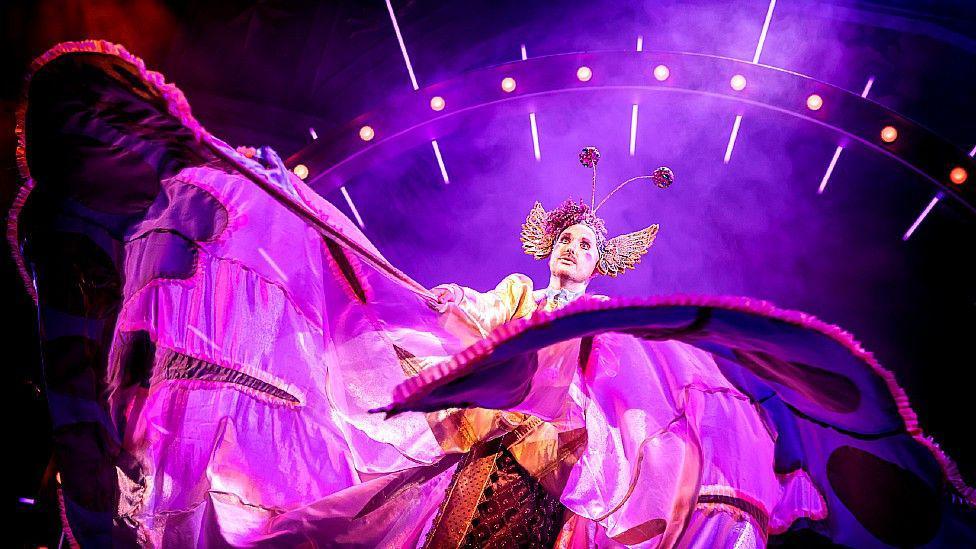
Costumes used in the show aim to recreate the extravagance - and sometimes copy the actual items - of those used by Henry Cyril in his plays.
It was this sense of exclusion that spoke to How to Win Against History creator Seiriol Davies when they first came across the photos of Henry during a visit to Plas Newydd - which was been owned by the National Trust for half a century - as a child.
In the midst of "marvelling at all the pomp", the playwright and actor from Anglesey was struck by the contrast between the lionisation of the 1st Marquess and his heirs and "the little laminated photocopy of some pictures of [Henry] Blu-tacked on the wall next to the toilet.
"It said he was a very silly man who wasted all the family's money doing very silly plays.
"A little bell of proto-queer indignation rang in my tummy, and because I believe in swift and decisive action, decided to make a musical about it 25 years later."
They describe Henry as "mesmerising, fabulous, glamorous and totally out of his time, but also kind of lost".
As an only child without a mother, Alex agrees one interpretation of Henry's outlandish behaviour could be as a sort of search for connection. "Maybe this was one way of creating an identity, which he certainly did.
"I do think he's a fascinating character no doubt about it, and his whole persona does fit in with David Bowie and that sort of thing. There's some truth in those kinds of connections and 'he was the inventor of the selfie' idea, which comes into the film or the musical."
Seiriol calls their loose interpretation of Henry's life "a screwball, riot comedy camp-o-rama but it has at its centre someone who doesn't even have his internal life because it's been eradicated.
"In this fiction that we're making about a character which is a bit like Henry in some ways - and this is not trying to be the truth about him - within our story he's constantly trying to find connection, find acceptance; trying to get someone to see him as him."
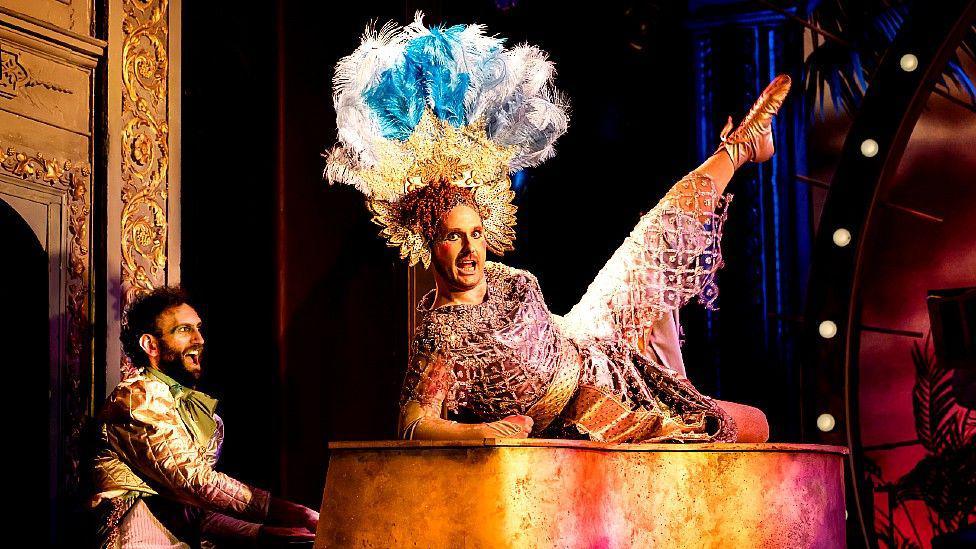
The Bristol Old Vic-produced show attempts to show a character like Henry Cyril desperately searching for connection and to be seen as he is.
"I think probably my grandfather's generation were pretty seriously embarrassed by him," said Alex.
"His existence was not denied but it's all summed up by the fact there were these photographs of him - but they were in the bathroom. They weren't portraits in the main room."
And now? "We're happy to celebrate his rather weird, to some degree not happy, but to some degree rather extraordinary and marvellous life."
- Published16 July 2013
- Published29 March 2021
